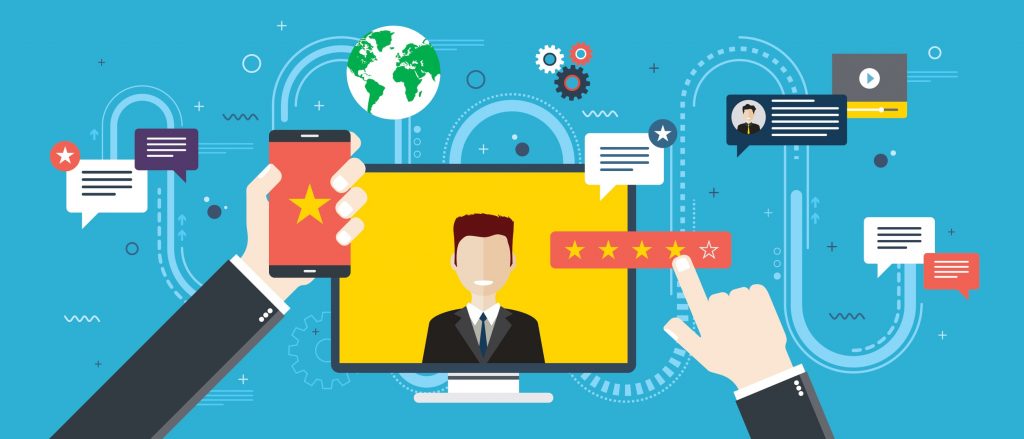
The global lockdown resulting from the COVID-19 pandemic has had a huge impact on customer behaviors. According to McKinsey, the share of digital customer interactions is three years ahead of where it would be if the pandemic hadn’t occurred.
In fact, McKinsey found that the C-Suite executives they spoke to were now three times more likely to say that at least 80% of customer interactions are digital in nature. Delivering a great digital customer experience is, therefore, becoming a make-or-break issue.
However, CX ≠ UX. To deliver a great customer experience, you must think about more than just the look and feel of your customer-facing applications – you must think about the end-to-end process. A great CX is not an event but a journey where you must constantly iterate your customer-facing services to ensure they continue to meet consumers’ rising expectations.
So, in a post-pandemic world, what does a successful digital CX looks like? Where should you invest to ensure the greatest impact and the fastest ROI?
3 Critical Customer Experience Investments in 2021
Here are three critical aspects that make a good digital customer experience in 2021 and successful examples of companies doing it right.
1. Omnichannel Experiences
An omnichannel experience is about integrating the different channels used by the different parts of your business to support a continuous customer journey. In other words, if you leave a channel, be it online or offline, and move to another, the experience continues as if nothing has changed.
This is particularly important in a time when, according to Forrester, 95% of customers use three or more channels to connect with a company in a single service interaction.
So, from a CX perspective, the critical consideration is to ensure that the customer has a consistent experience across each channel – and that they can transition seamlessly between them without needing to repeat steps or re-enter information.
Success Story
A good example of a successful omnichannel experience is the pet supplier Beeztees that implemented a new omnichannel e-commerce platform that provides real-time access to product, inventory, pricing, and order information.
2. Customer Self-Service
Customer self-service solutions have become increasingly important during 2020, when access to ordinary face-to-face resources, like bank employees or insurance agents, suddenly became very limited, and call centers were either closed or operating on a socially distanced basis.
And, although we’re getting back to normal, it is very likely that the use of these tools will only increase. In fact, Gartner expects one in five customer service interactions to be entirely handled by artificial intelligence by 2022, an increase of 400% from 2018.
In addition to that, 81% percent of users now try to solve problems on their own before reaching out to support. And the latest contact center annual report seems to confirm this, with self-service becoming a top priority for 2021.
Therefore, you should aim for ‘frictionless’ digital self-serve experiences that put as few hurdles as possible between where your customers want to go and how they get there. For example, research has found that creating a new bank account can be done in only 24 clicks but could take as many as 120 with traditional onboarding journeys!
Success Story
Yorkshire Building Society (YBS) Group—the UK’s third-largest building society Group —created a mortgage calculator that improved conversion rates by 54% and reduced the time taken to open new savings account by 40%.
3. Agile Backbone
The lockdown and the massive move of customers online has pushed the accelerator pedal on companies’ digital ambitions to the floor. But digital transformation does not necessarily deliver agility. Simply moving an inefficient offline process onto a digital channel does not increase agility – it merely migrates a cumbersome process from one platform to another.
However, according to DevOps Research and Assessment’s State of DevOps Report, elite performers can have their code in production in less than one day. These companies are twice as likely to meet or exceed their organization’s CX performance goals. That’s what agility means in a CX context; the ability to use digital channels to serve existing customers effectively and continue acquiring new customers.
Success Story
By investing in a technology that promoted agility, thinkmoney was able to completely re-engineer its customer onboarding process to improve completion rates by 30% in just seven weeks and helped them grow 5% in the first three months.
So, Where Should You Start?
Delivering great CX is a process that never ends. You need to create and iterate new customer-facing applications on an ongoing basis to ensure that the experience you offer your customers meets their needs. And you need to do this at a time when IT resources are scarcer than ever.
In these circumstances, only a modern application development platform like OutSystems can meet the demand for lean digital innovation and ensure a rapid return on your CX investments.
-END-
In light of the research results, as BAYPM, we would love to help you with your Digital Transformation journey, give us a shout and we’ll be sure to assist you as best as we can. Currently, we are working on a project to digitize manual processes within different locations. The client opted for an incremental implementation approach based on geographical locations and the needs of their different factories.
